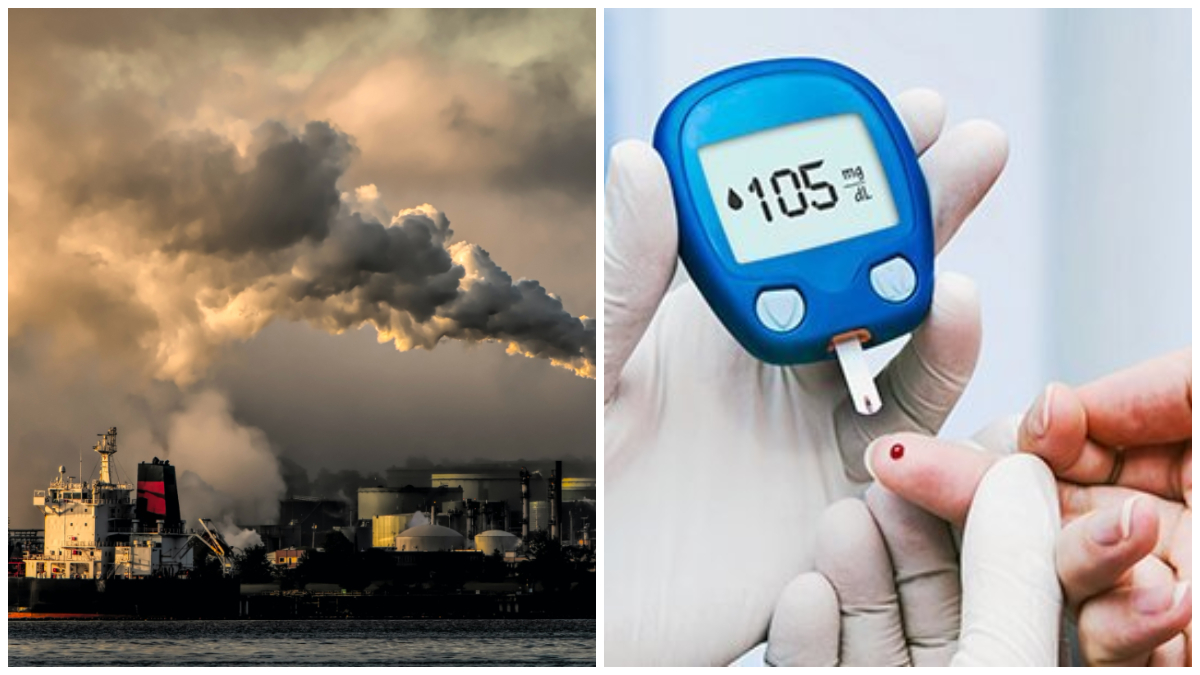A recent study suggests that breathing polluted air containing PM 2.5 particulate matter, which is 30 times thinner than a strand of hair, can heighten the risk of developing type 2 diabetes with prolonged exposure.
The Lancet, a prominent medical journal, conducted a study that details how chronic exposure to PM 2.5 pollutants from sources such as oil, diesel, biomass, and gasoline combustion is responsible for linking 20% of type 2 diabetes cases. This study carries significant implications for India, where rising pollution levels expose a substantial population to harmful air pollutants.
Also Read: Bengaluru Water Crisis Spurs Mangalore Water Cut: Timing And Impact On Residents
In urban areas, PM 2.5, a significant component of air pollution, is often described as a “killer” due to its impact. According to the study, short-term exposure to PM 2.5 increases the risk of insulin resistance by activating the autonomic nervous system, a pathway toward cardiovascular diseases.
The study also discovered that monthly exposure to PM 2.5 pollutants raised blood sugar levels, while nearly a year of exposure increased the risk of type 2 diabetes by 20%.
Men from lower socioeconomic backgrounds and those with comorbidities exhibit a stronger link between air pollution and diabetes. Chronic kidney disease is associated with PM 2.5 in populations with and without diabetes, according to the evidence.
Globally, around 537 million people suffer from type 2 diabetes, with half of them unaware of their condition.
Indian People Affected By Diabetes Due To Air Pollution
In India, an estimated 77 million adults have type 2 diabetes, and about 25 million are prediabetic, putting them at a higher risk of developing diabetes in the future, according to the WHO.
The World Air Quality Report identified Bihar’s Begusarai as the world’s most polluted metropolitan area, while also labeling Delhi as the capital city with the poorest air quality. Since 2018, Delhi has held the title of the most polluted capital city globally four times.
According to the World Air Quality Report 2023 by the Swiss organization IQAir, India ranked third in terms of poor air quality out of 134 countries in 2023, with an average annual PM2.5 concentration of 54.4 micrograms per cubic meter. Bangladesh (79.9 micrograms per cubic meter) and Pakistan (73.7 micrograms per cubic meter) held the top two spots.
In 2022, India held the eighth position as the most polluted country, with an average PM2.5 concentration of 53.3 micrograms per cubic meter.
An estimated 1.36 billion people in India are exposed to PM2.5 concentrations exceeding the World Health Organization’s (WHO) recommended annual guideline level of 5 micrograms per cubic meter, according to the report.
Also Read: Karnataka: BJP MP V Srinivasa Passes Away After Prolonged Illness













